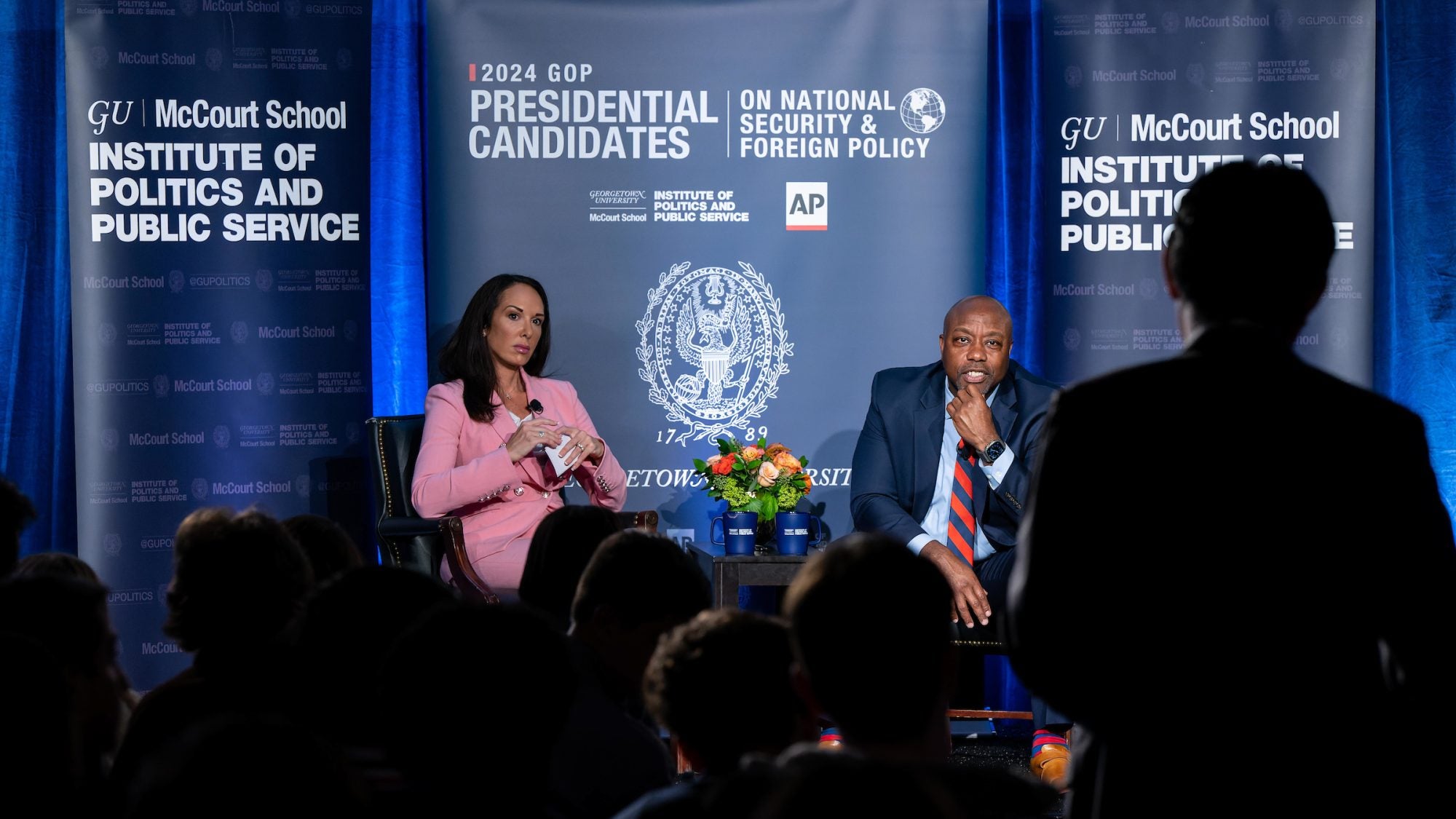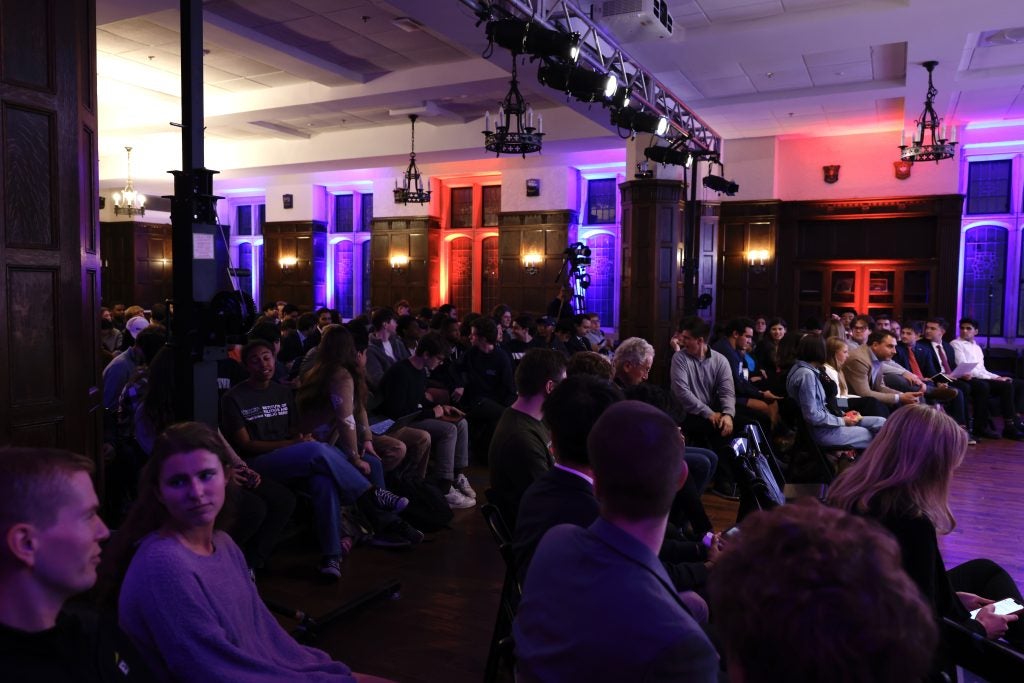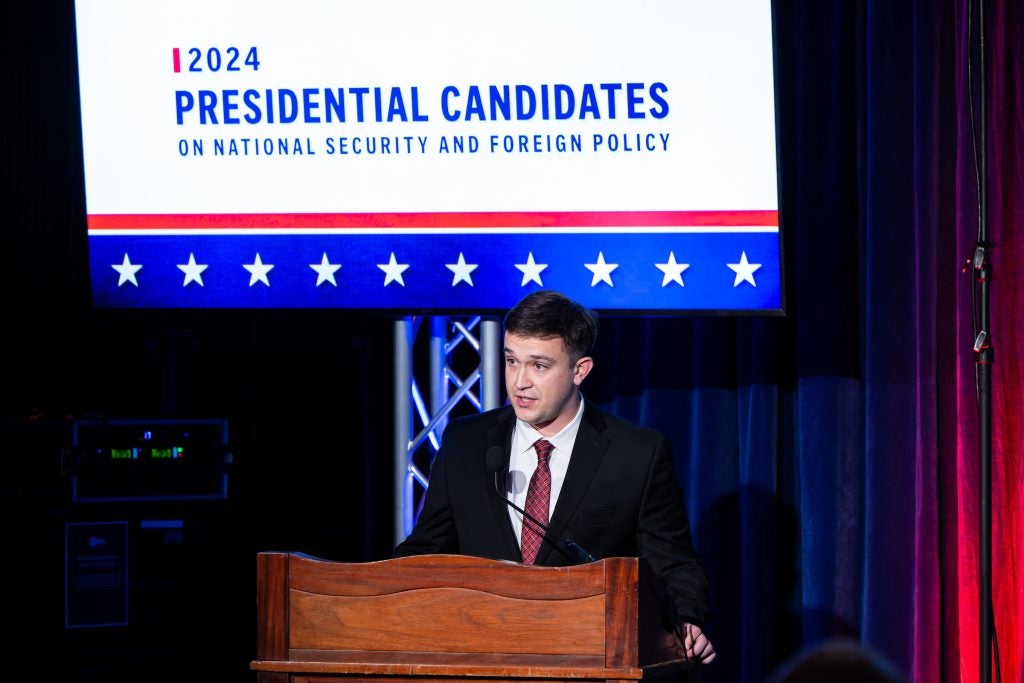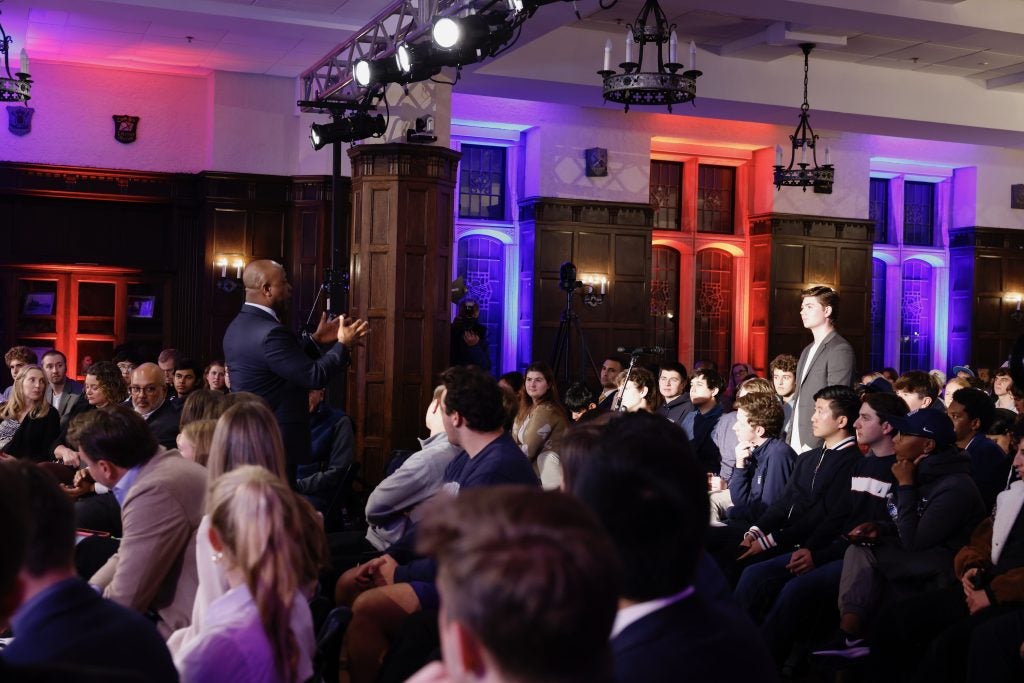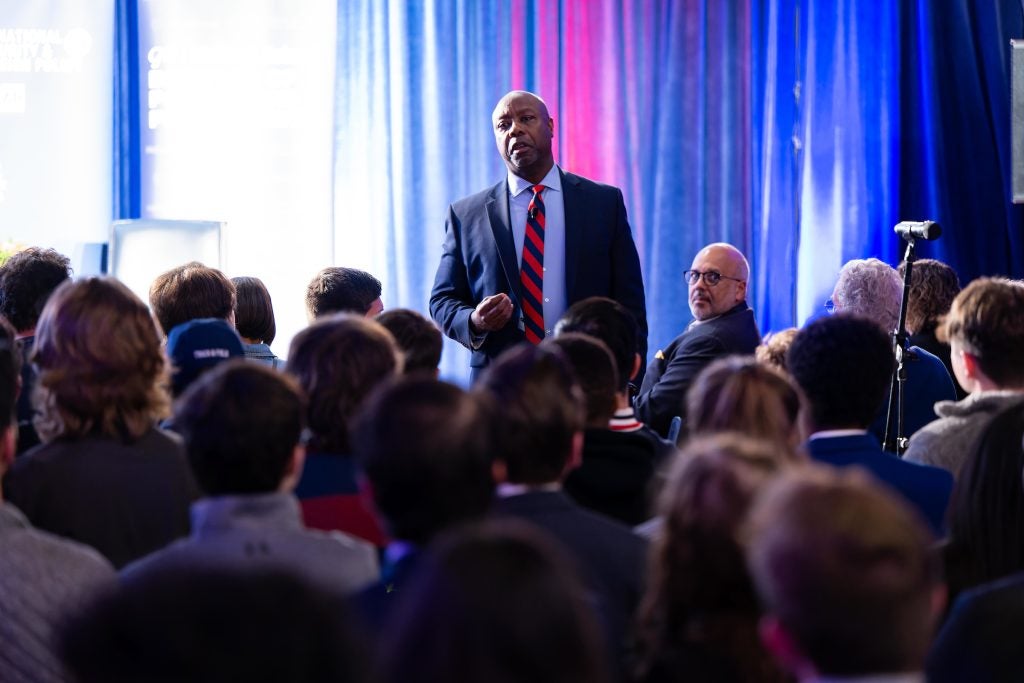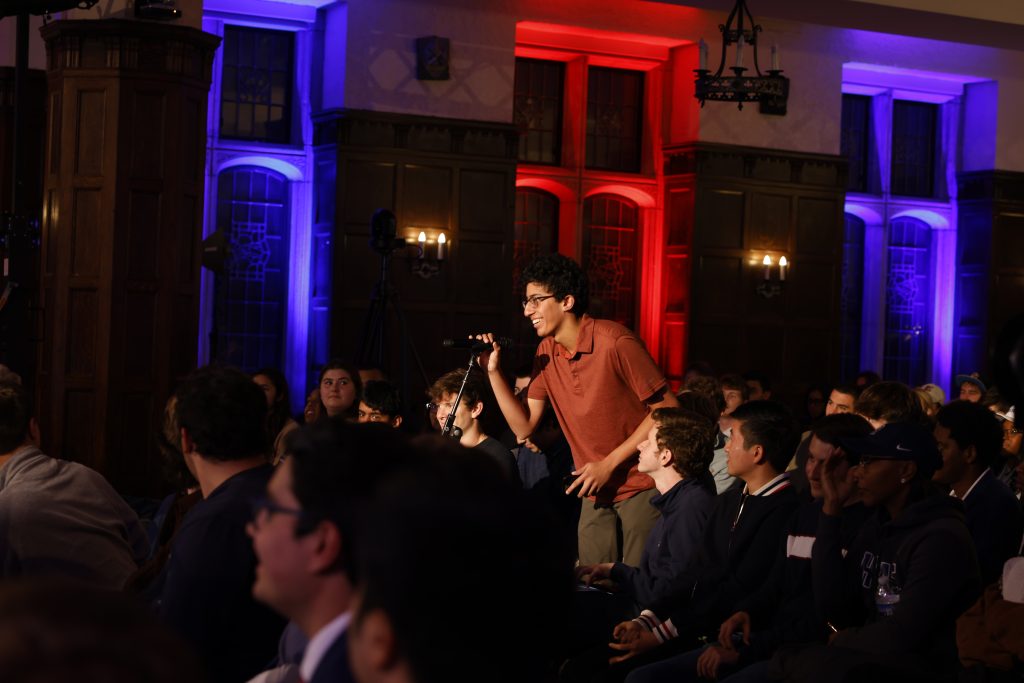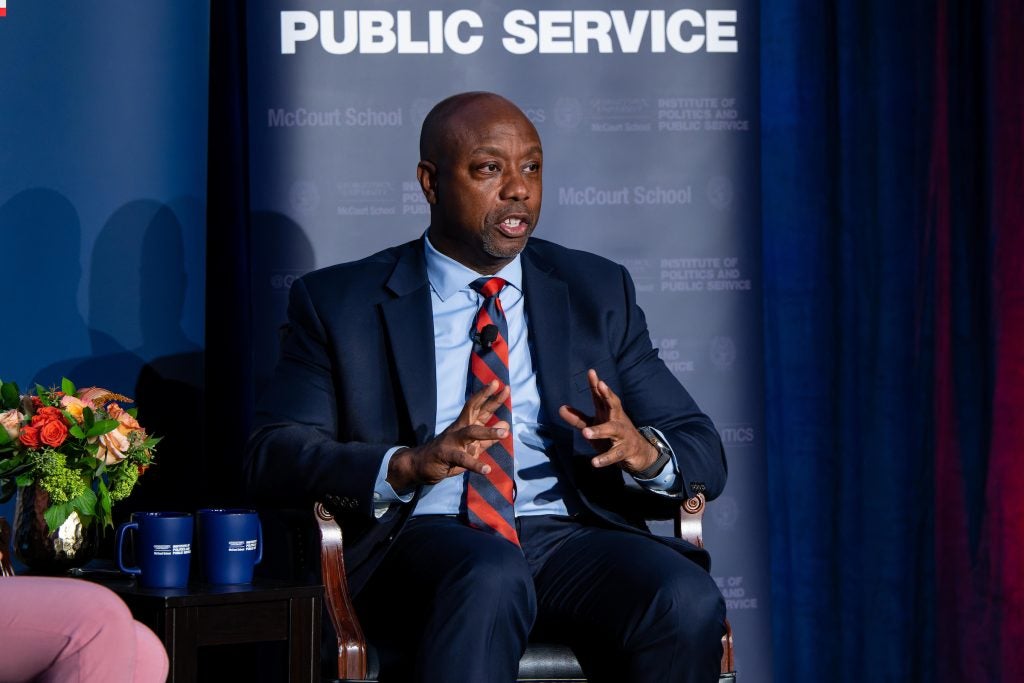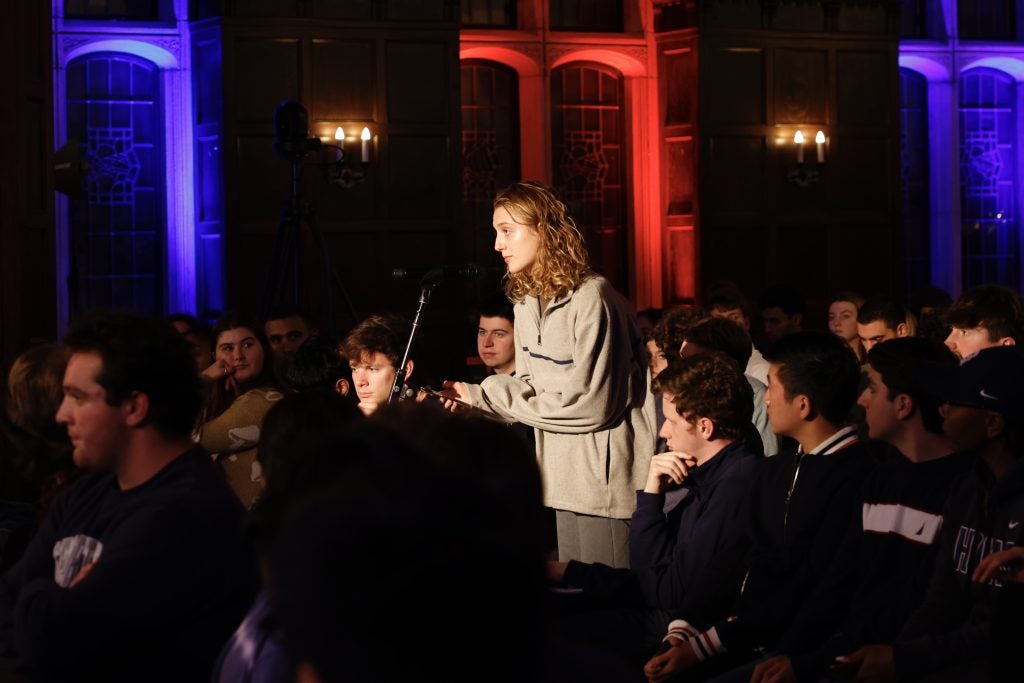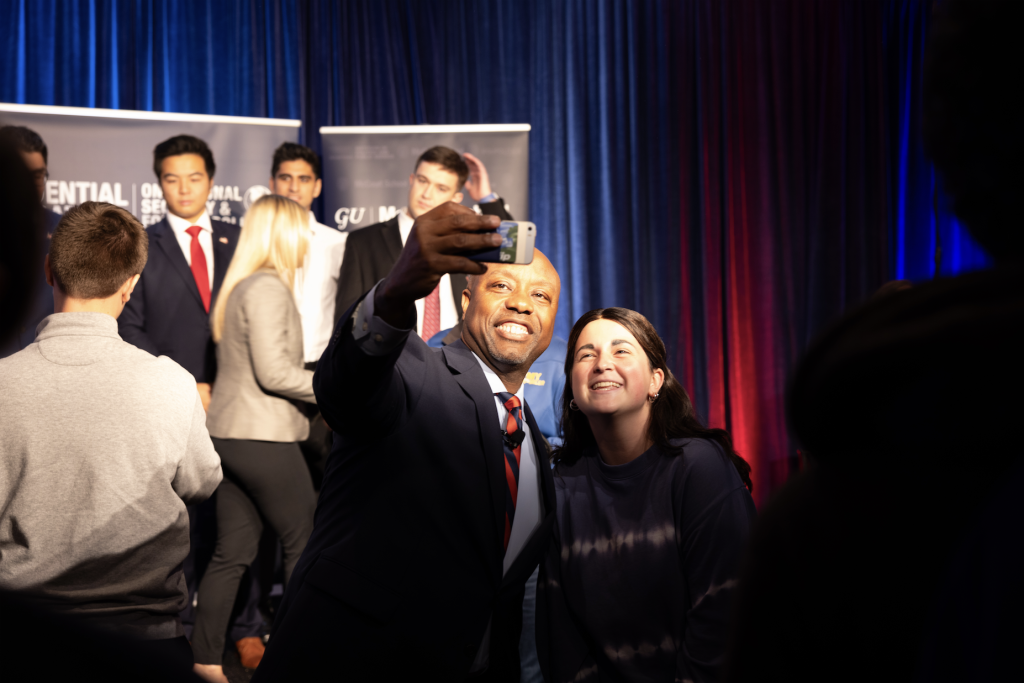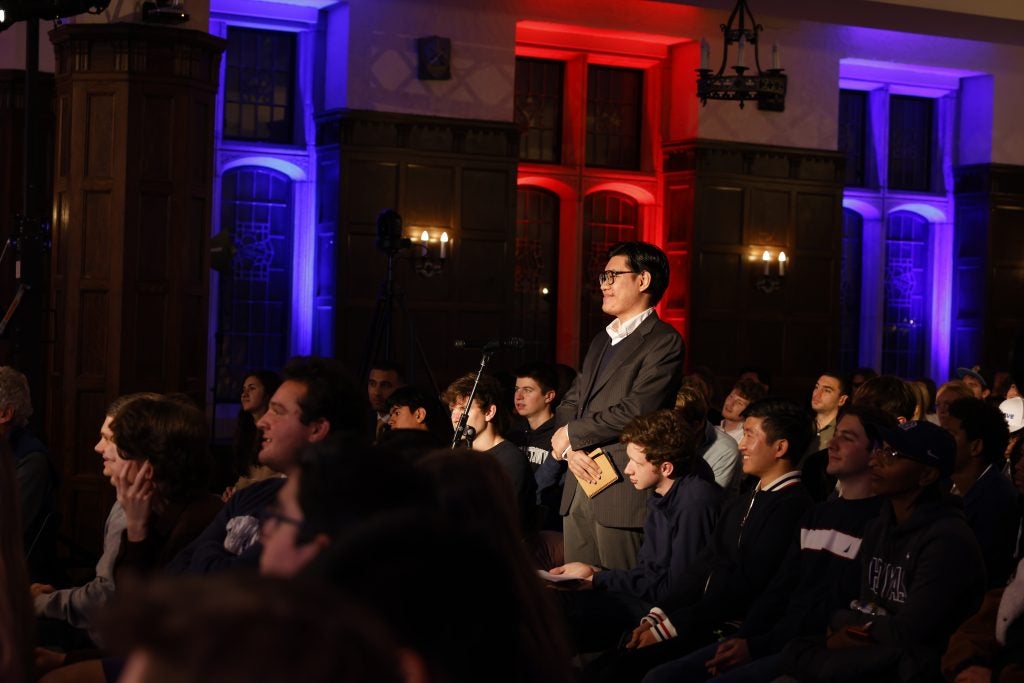On Monday, October 16, the Georgetown Institute of Politics and Public Service hosted its second event in its 2024 GOP Presidential Candidate Series on National Security and Foreign Policy with a discussion featuring the junior United States Senator from South Carolina, Tim Scott.
The series of conversations hosted by GU Politics and The Associated Press is a platform for students to engage with the leading candidates for the GOP presidential nomination on issues of national and international significance. Students at Georgetown were joined virtually by other students at college campuses across the country, including the University of New Hampshire and Clemson University. The discussion was moderated by Associated Press reporter and Georgetown alumna Meg Kinnard.
The conversation centered on key foreign policy and national security issues, with a heavy emphasis on the recent Israel-Hamas conflict in the Middle East. Scott pledged his unwavering support to Israel, stating that we (America) must “stand shoulder to shoulder” with our Israeli allies, calling the recent Hamas terrorist attacks “unimaginable atrocities.” In terms of specific policy actions, Scott backed the decision to move the U.S. Navy’s 6th Fleet into the region to support Israel, and argued to increase the $3.5 billion of military aid given to Israel each year, in order to ensure it had the capability, manpower and resources to “wipe Hamas off the face of the Earth.” Senator Scott viewed the U.S.-Israeli military partnership very favorably overall, stating that the U.S. benefits from Israeli military innovation and technological advancements.
When asked about the regional nature of the conflict, Scott believed Iran was responsible for the deadly Hamas attack, continuously stating that more than 90% of the terrorist group’s funding comes from Iran. Scott also heavily criticized the Biden administration’s response to the conflict, stating that the President’s initial message urging Israel to exercise restraint was a major blunder. When asked about his previous comment that President Biden had “blood on his hands,” Scott elaborated that Biden’s references to Israel’s illegal occupation of the West Bank and Palestinian territories was a “distraction” that remained a serious concern among Israeli citizens. The Biden administration’s wider foreign policy agenda was criticized, as Scott stated that the President’s “weakness invites attacks,” particularly focusing on the Afghanistan withdrawal and Ukraine invasion as major foreign policy failures for Biden.
The humanitarian crisis in Gaza was also a notable topic of discussion, where 2.3 million people are at risk after water, food and electricity supplies are running critically low due to the Israeli blockade. Scott completely backed PM Netanyahu’s response, arguing that Israel showed “moral restraint” by giving 1.1 million Palestinians a 24-hour deadline to evacuate to southern Gaza before ground operations were launched. On whether Israel violated international law, Scott responded by highlighting Hamas’ lack of respect for international rules of engagement and consistently claiming that Israel occupied the moral high ground. When the discussion shifted to establishing a humanitarian corridor, Scott supported the opening of the Egyptian Rafah border crossing for aid supplies to be delivered to Gaza. However, he staunchly opposed accepting Palestinian refugees into the U.S., claiming that individual refugees’ political allegiances could not be determined since the “majority of Palestinians supported Hamas.”
Senator Scott also fielded several questions from students at Georgetown, University of New Hampshire and Clemson University, expanding the foreign policy discussion beyond the Middle East. Scott voiced support for reforming the country’s legal immigration procedures into a merit-based system, recognizing that seven million unfilled jobs in the country required immigrants of varying skill levels. When asked about how the U.S. should counter the rising levels of Islamophobia in India, Scott claimed answering a centuries-old question in thirty seconds was impossible, but generally encouraged dialogue with the Indian government on human rights while continuing to foster the U.S.’ strategic partnership with the country. On the South China Sea, Scott emphasized the need to work with regional partners while reducing supply chain reliance on Chinese firms.
Senator Scott’s presentation style during the event was unique, with Scott often jumping out of his seat to interact with students face-to-face. Students appreciated the opportunity to have a platform to voice their opinions and engage in constructive dialogue on global issues that matter to them. Sahil Sud, a freshman in the School of Foreign Service, said that “I’m glad I attended because it was interesting to get an insight on how Scott’s first reaction to the events of the last week differed from [President] Biden’s.”
This article was written by Peer Khan (SFS ‘27), a staff writer for On The Record.
View the full event recording below.
